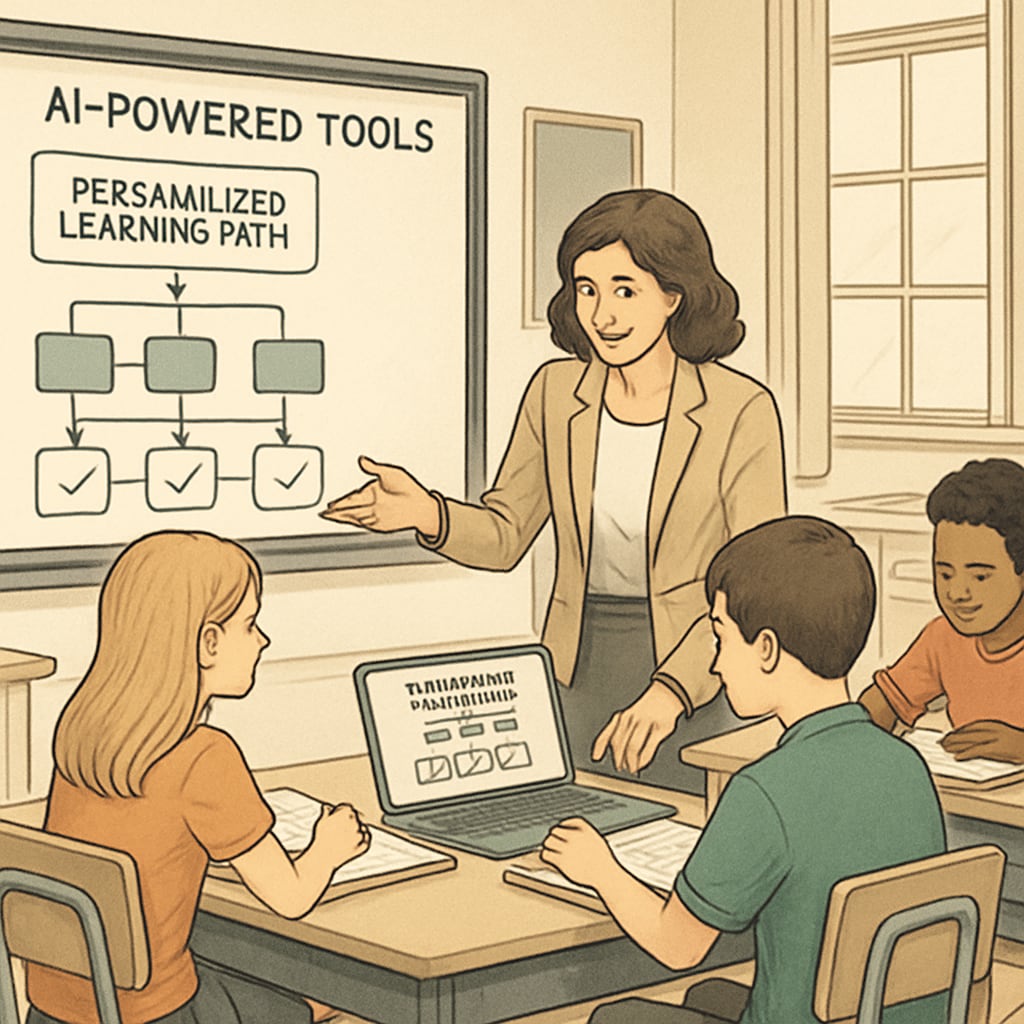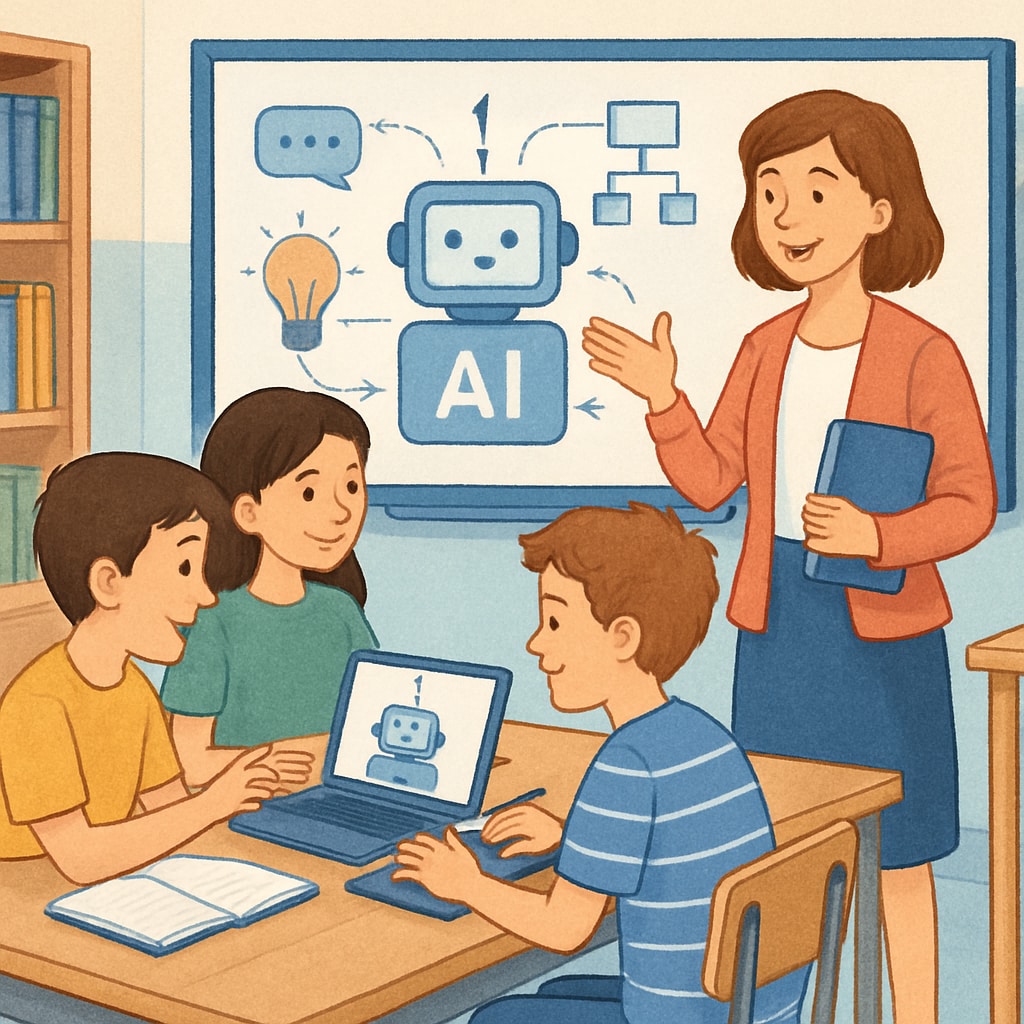The rapid advancement of AI technology is significantly transforming the education landscape, sparking debates about its impact on teacher value and salary evaluation. As AI-powered tools become more integrated into classrooms, the traditional teaching model is evolving, leaving educators to question their roles in a system undergoing profound change. How does AI influence the teaching profession, and is the current education system equipped to recalibrate teacher value in this technological era?
How AI is Reshaping the Teaching Landscape
Artificial intelligence (AI) has made significant inroads into education, offering personalized learning experiences, automated assessments, and administrative efficiency. For example, AI-driven platforms like Khan Academy or adaptive learning systems like DreamBox provide tailored instructions based on individual student needs. While these innovations enhance learning outcomes, they also raise questions about the necessity of certain teaching tasks traditionally performed by educators.
Tasks such as grading, lesson planning, and even tutoring are increasingly automated, reducing the demand for manual teacher intervention. As a result, educators are shifting their focus to roles that require higher-order skills, such as fostering critical thinking, emotional intelligence, and ethical reasoning in students. However, this shift invites a critical examination of how teachers’ contributions are valued and compensated in an AI-driven environment.

Reevaluating Teacher Value in an AI-Enhanced World
Traditionally, teacher value has been measured based on their ability to deliver knowledge, manage classrooms, and guide student success. AI’s capabilities challenge these metrics by taking over repetitive and standardized tasks. This raises an essential question: If AI can handle routine teaching responsibilities, how should we redefine teacher value?
One perspective argues that teachers’ roles should focus on areas where AI falls short, such as providing mentorship, building relationships, and addressing the social-emotional aspects of learning. These are areas where human intuition and empathy excel, making them invaluable despite technological advancements. As a result, the education system must place greater emphasis on these human-centric contributions in salary evaluations and professional development frameworks.
However, this transition is not without challenges. Teachers may face pressure to upskill in areas unrelated to traditional teaching, such as technology integration or data analysis. Moreover, disparities in access to AI tools across schools could exacerbate existing inequalities, making it harder to standardize teacher value assessments.

The Financial Implications of AI Integration
The integration of AI into education also necessitates a reevaluation of salary structures. If AI reduces the workload for certain teaching tasks, some policymakers may argue for lowering teacher salaries. Conversely, the demand for specialized skills—such as AI management and emotional intelligence—could justify higher pay for educators who excel in these areas.
Countries with advanced AI integration in schools, such as Finland and Singapore, offer insights. In these systems, teacher salaries are linked to their ability to adapt to new technologies while maintaining student engagement. For instance, professional development programs are incentivized to help teachers remain competitive in an evolving field. As a result, these nations demonstrate that investing in teachers can yield long-term benefits for education systems.
However, the risk of undervaluing teachers remains. If compensation models fail to account for the unique contributions educators make in an AI-enhanced world, the profession may struggle to attract and retain talent. Therefore, policymakers must carefully balance the financial implications of AI integration with the need to sustain a motivated and skilled teaching workforce.
Preparing for the Future
As AI continues to reshape education, the teaching profession must undergo a parallel evolution. Policymakers, educators, and stakeholders must collaborate to redefine teacher value and ensure fair compensation. This includes:
- Establishing clear guidelines for integrating AI into classrooms without undermining the human element of teaching.
- Creating professional development programs that equip teachers with skills to thrive in an AI-enhanced environment.
- Implementing salary models that recognize the unique contributions of educators, particularly in areas where AI cannot replace human intuition.
By addressing these challenges proactively, the education system can harness the benefits of AI while preserving the integrity and value of the teaching profession.
As a result, the conversation around AI education, teacher value, and salary reevaluation is more important than ever. With thoughtful planning and investment, educators can remain at the heart of the learning process, even as technology continues to evolve.
Readability guidance: Short paragraphs and frequent use of transitional phrases ensure accessibility. Lists summarize key points for clarity, while external links provide authoritative context.


